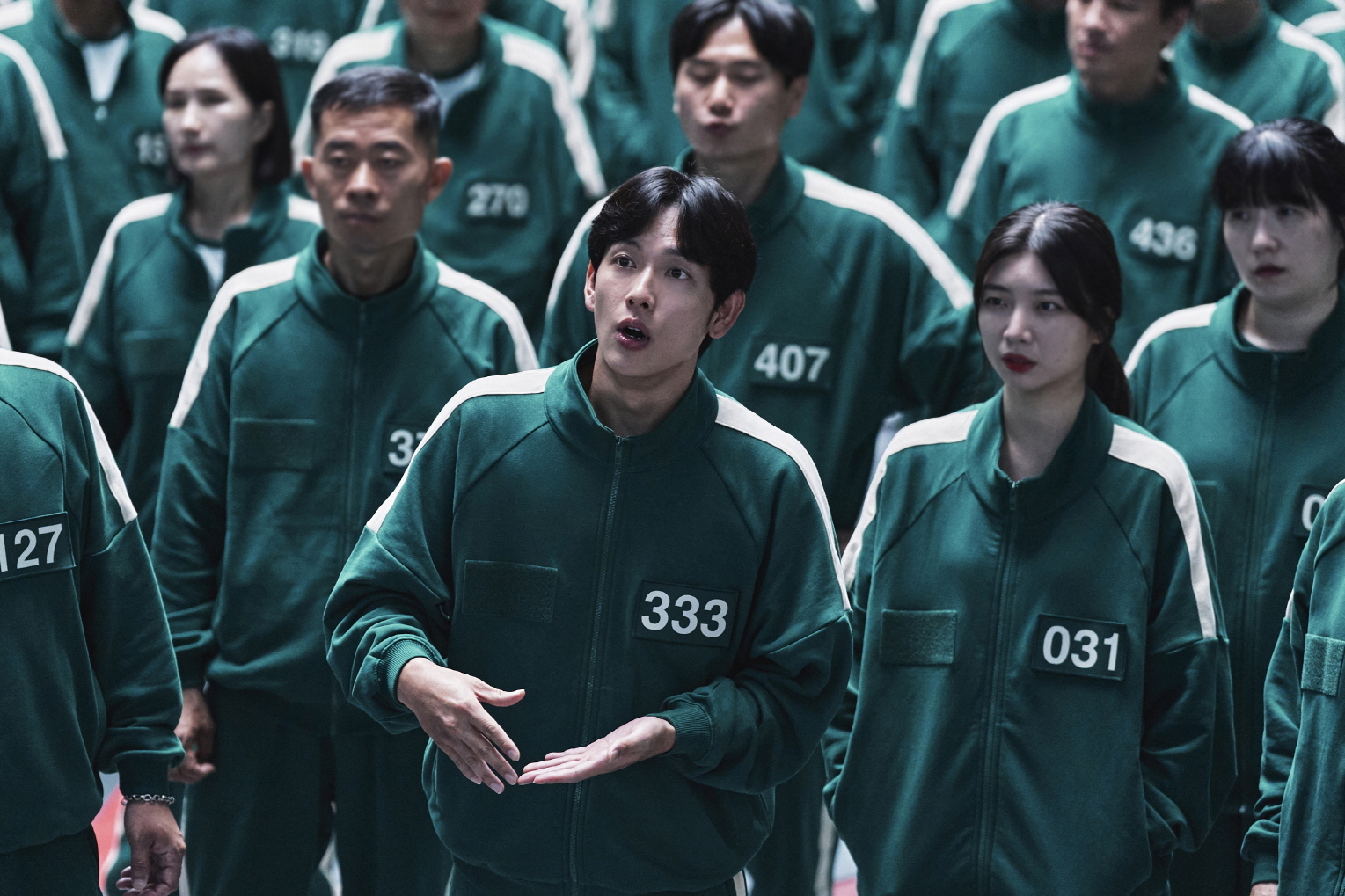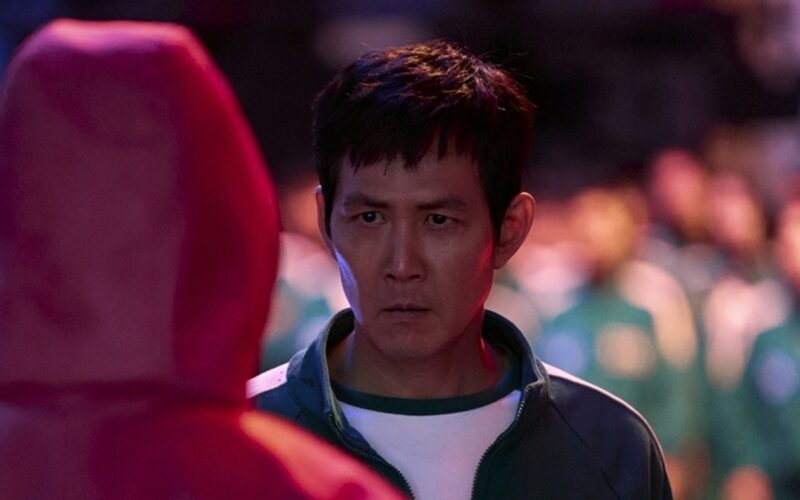
The highly anticipated Season two of Squid Game was met with criticism like any media would be – but are the critics hating just to hate? With new characters, new games, and a new perspective on the story, things look bright for the storyline’s three-year-long development.
With Season One being such a global success and putting K-Dramas on the map within Netflix’s global rankings and international audience, there was a lot of pressure to succeed. Like a gun to the head, lead actor Lee Jung Jae (Seung Gi Hun) and Director Hwang Dong Hyuk both knew they had to uphold the hype built by the public and I believe they certainly met the threshold of furthering the intense story of season one while also being an exciting season on its own.
The games become more political as the fight is more so between the players themselves and their own personal convictions leading to their demise. While the games may be cruel and seem unjust, this season constantly reminds players and viewers of the right to exercise democracy by voting and ending the games at any given time. Capitalism and greed become the natural forefront of Season Two’s story and delves into these aspects more critically than in the first season. A lot of players seem more focused on winning and forming political parties led by matching ideals and morality more so than killing each other like animals as seen in the first season (excluding T.O.P’s character Thanos). It shows that the games aren’t one-sided and the players are unique to the outcome.
Like Season One, an array of characters with colorful pasts are introduced and none feel forced, drawn out, or flaccid. A mother and a son, an idol, a pregnant woman, and even a transgendered woman make an appearance. It proves everyone’s circumstances can drive them to risk their lives to pursue the ideal one they dream of. Director Hwang is aware of representing various stories that are global – not just better suited for Korean audiences. While the pacing can be slow, the new characters are tastefully written and just as interesting.
As for the games, they were just as fun as they were in the past. While the first game of ‘Red Light Green Light’ (being iconic to the series) was included again, more games were introduced into the season and highlighted a lot of traditional games that Koreans loved playing such as jacks (Gonggi) and hacky sack (Jegichagi). As always the rules remain the same and the results remain brutal with every game ending in bloodshed. However, the golden piggy bank metaphorically hanging hopes by a thread continues to entice players even in their sleep. The action of season one is still there but the games felt short-lived within the eight-episode series. Season three may showcase more but I do miss the anxiety of wondering what game was next and seeing in-depth character struggles within the complex situations. This season was built to tie things together and leave no loose ends to previous and newer stories so it could appear dialogue heavy.
>>‘Squid Game’ Director Explains Season 2 Finale Deaths + Reasons Stories Split Into Season 3
This time around, season two also delves into the life of a worker – that’s right, the pink jumpsuit men have a backstory too! Before, Officer Hwang Jun Ho (played by Wi Ha Jun) is seen sneaking in and observing the eccentric men in pink like ants. However, we now understand how the workers come to be, how they function, and the discord that can even arise between them when one worker purposefully shoots people in the organs so their bodies can be spared from black market trading.

A personal highlight was seeing Gong Yoo’s character (The Salesman) become less of a shallow entity and more of a madman. We plunge into his own brand of deranged behaviorism and learn Yoo lives within a cookie-cutter perfect society seeking a thrilling escapism through trivial games with a twist. His character’s power-hungry ambitions that offer a rush paired with his rule-abiding and calm demeanor make him demented in a delightful way. I couldn’t look away from his antics and his on-screen death was a thrilling one letting viewers know no character is safe from the game’s hysteria – inside or out of it.
>> 7 Movies Featuring ‘Squid Game 2’ Stars, Now Available on Amasian.TV
In the end, the game branches out into one of political turmoil, human morality, and Gi Hun’s personal mental gymnastics. Gi Hun’s personal issues after obtaining the blood money, as he calls it, torments him. Gi Hun’s obsessed and this in itself is entertainment for the VIPs. “You should’ve gotten on the plan,” is what Gi Hun is constantly told but his ethics keep him in pursuit and makes us bond with him more as we explore this new arena of hell that is laid out for him.
For reviews claiming the show is lacking, was a bust, or doomed from the start seem to either have a chip on their shoulder or embellish the idea that this fantastic series should’ve remained a one-hit-wonder. One can only watch for themselves to make a decision. Netflix is known for opting out of two seasons for many series and Squid Games is deserving of a fleshed-out story. With Season Three confirmed, fans truly have more to look forward to and I truly wonder what will come of the players’ uprising witnessed in the final episode. (9.5/10)



















